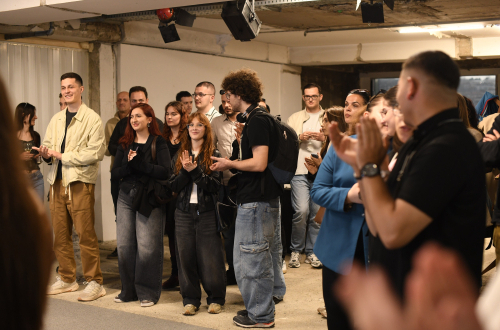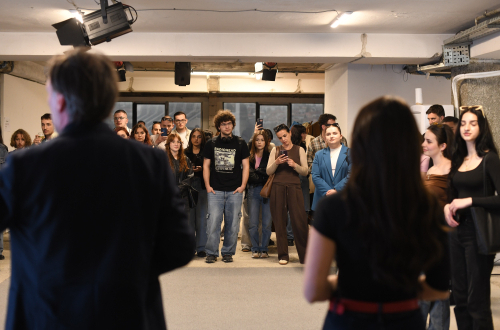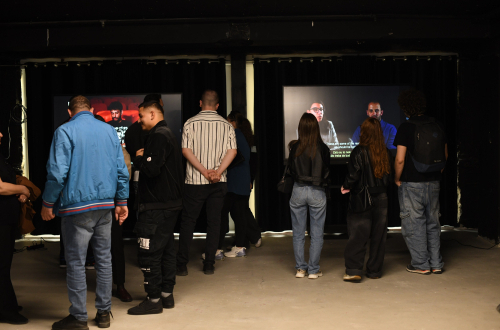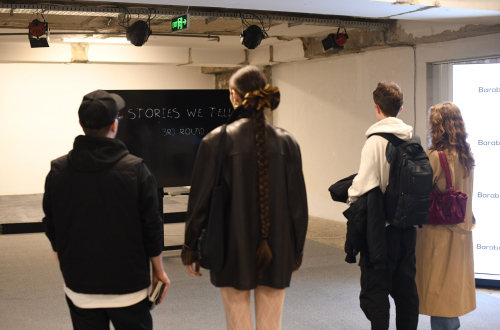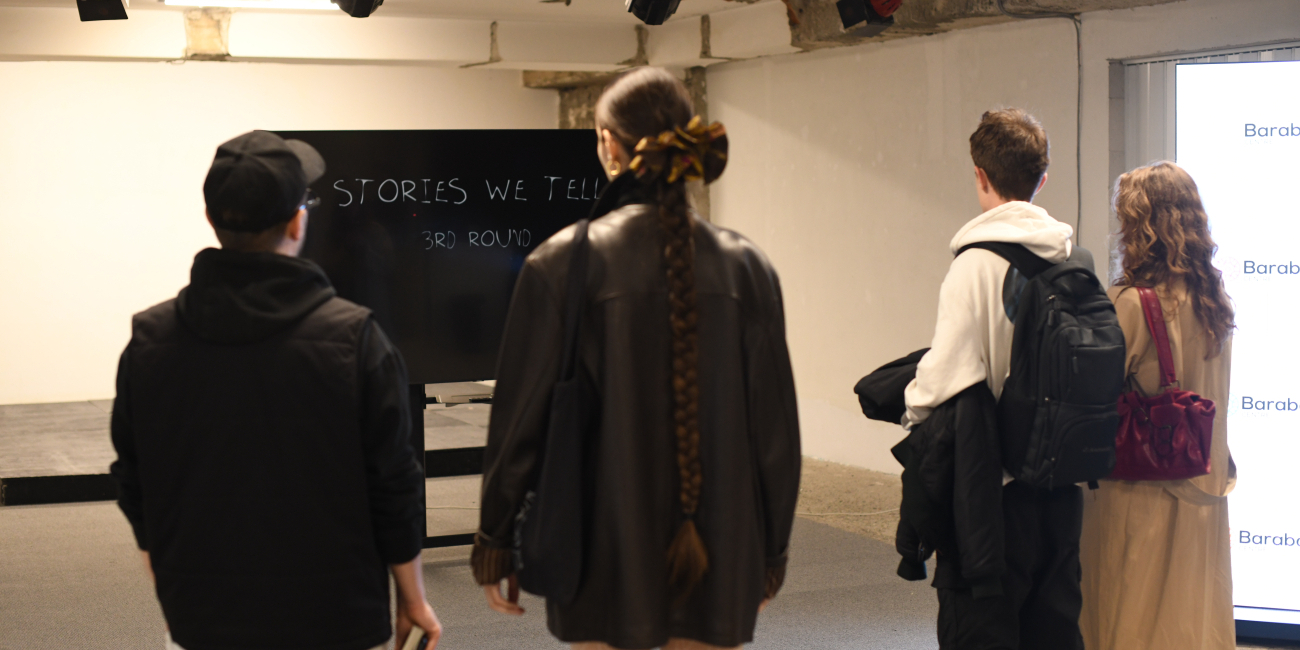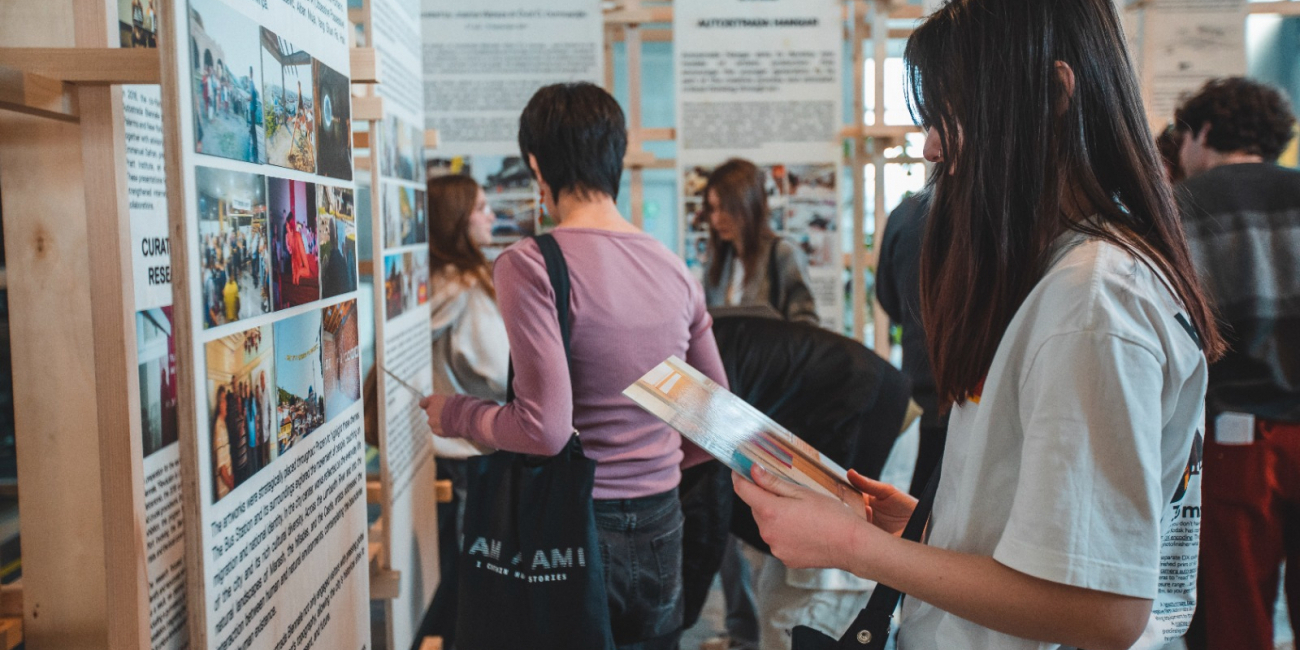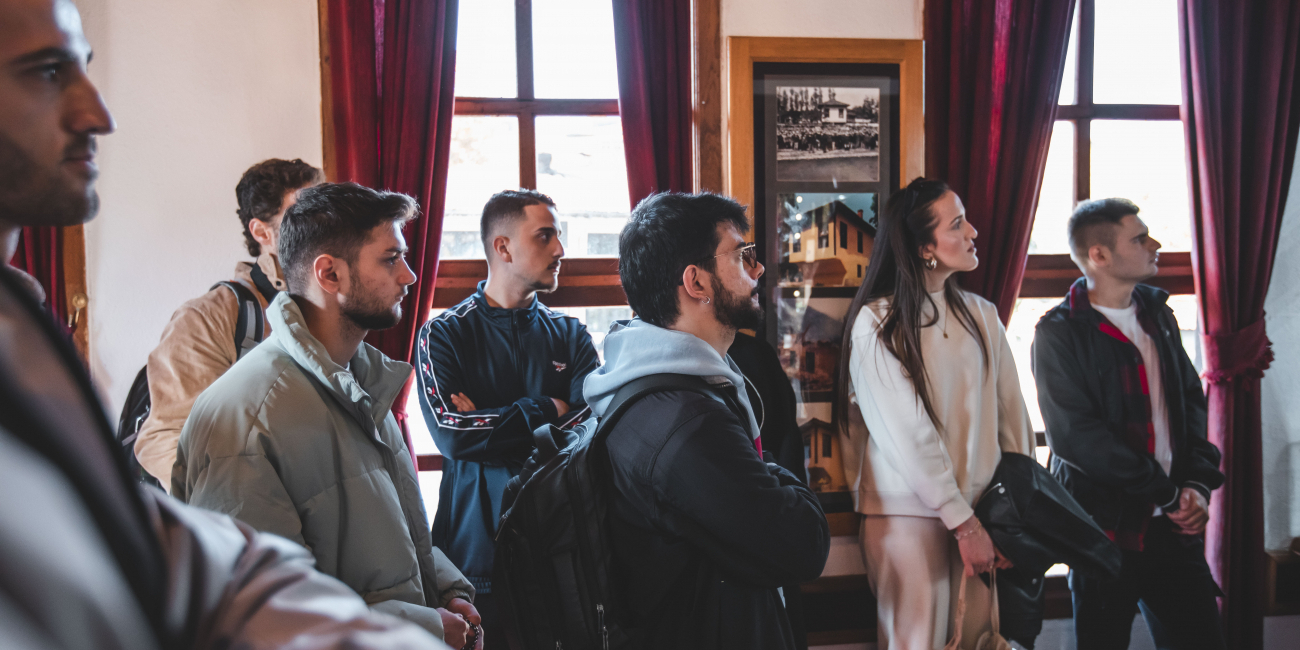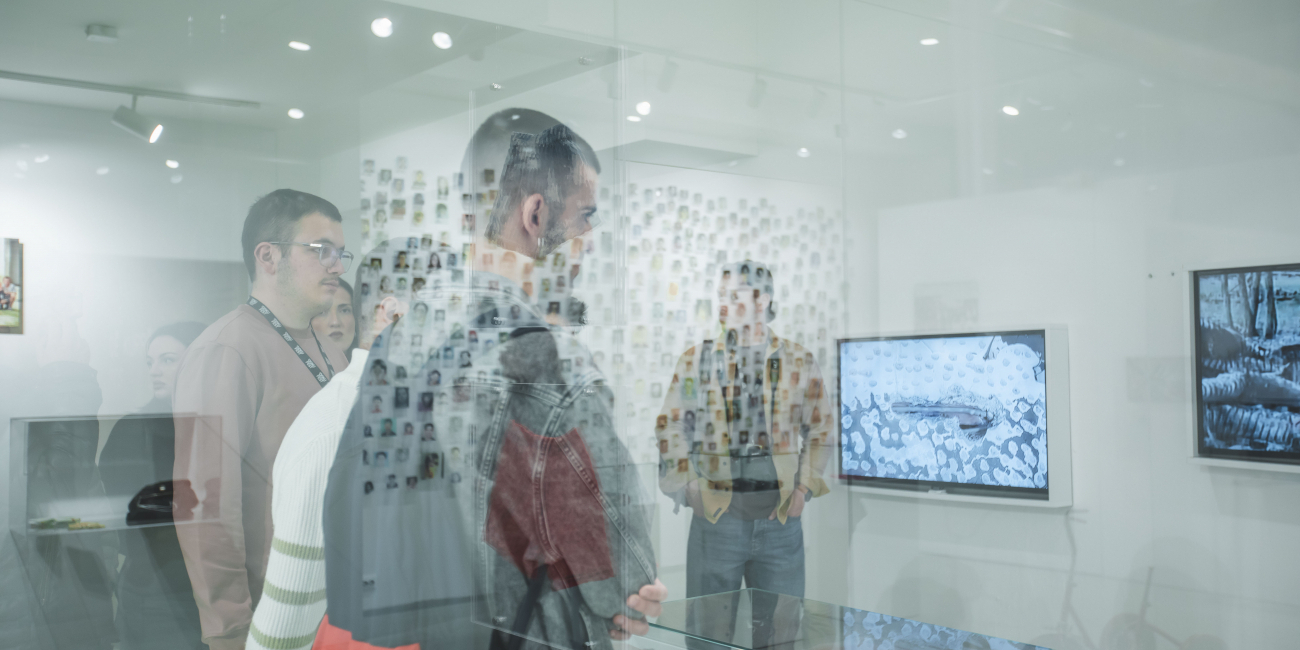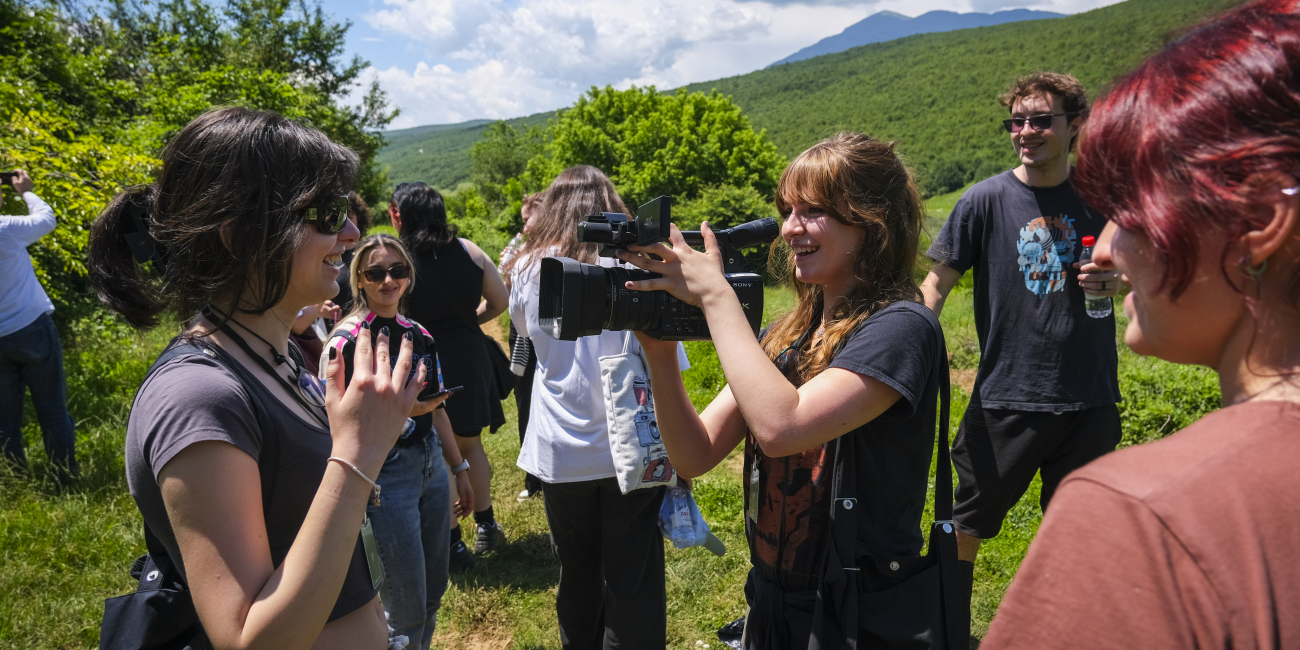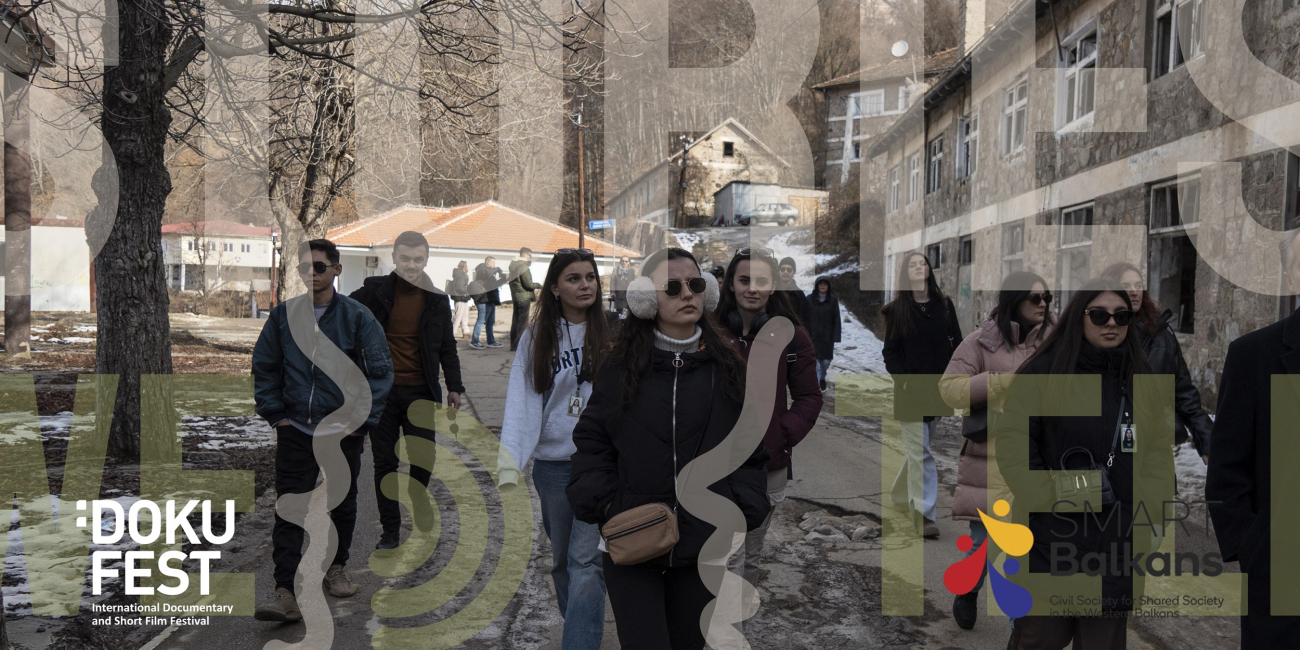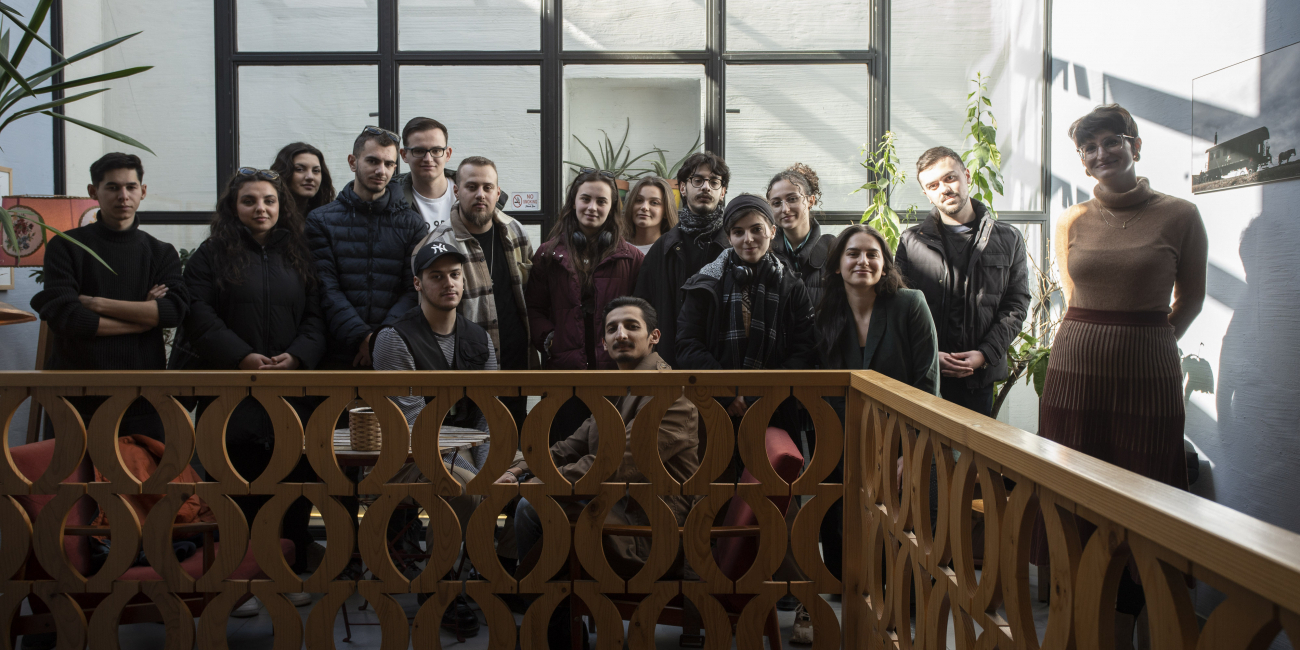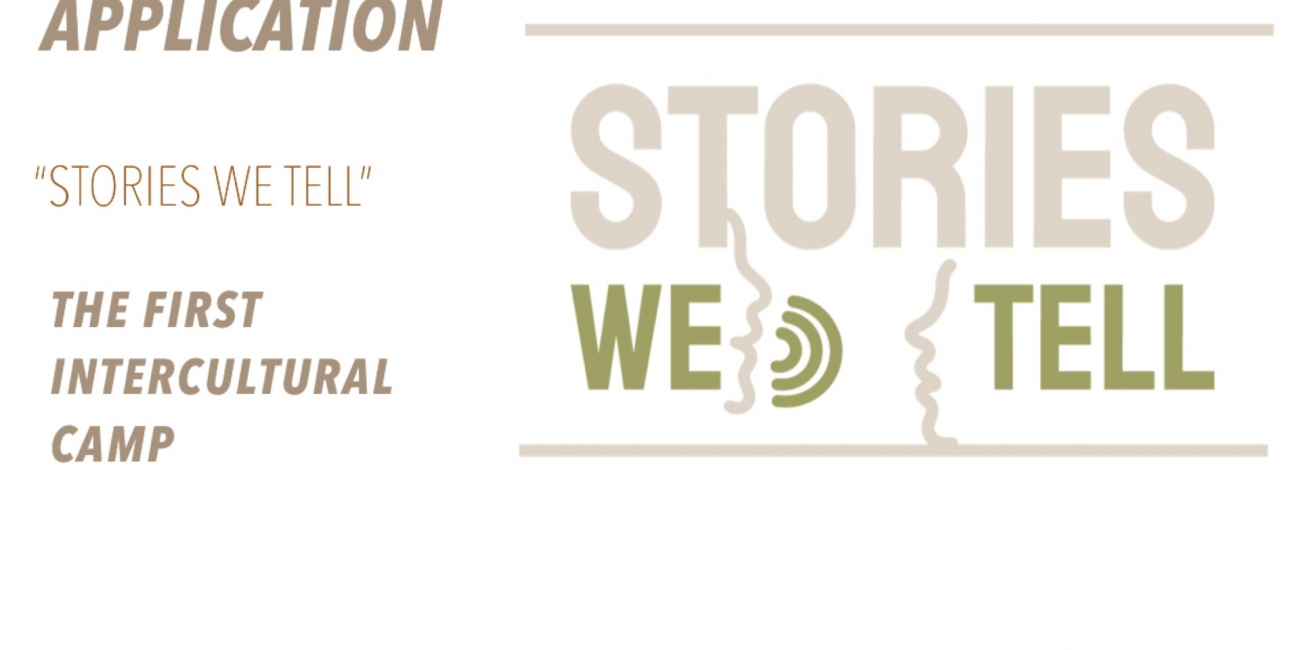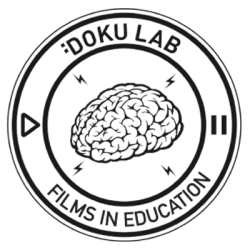Exhibitions
FIRST EXHIBITION
As a closing activity of the week-long camp, we conducted individual interviews with the participants as part of the project. We then processed the interviews and presented them in an audiovisual exhibition at Kino Armata on May 31, 2024.
In this exhibition, the camp participants were the protagonists. They shared their experiences and perspectives on identity, art, and social change.
.webp)
A special element was the fact that the exhibition of the first camp was shown during the second camp, this gave the participants of both camps the opportunity to get to know each other.
For some, it was the closing point of their experience, while for others, it was a look at how the camp would end and how their interviews would turn into an exhibition.
SECOND EXHIBITION
During the 23rd edition of DokuFest, the second exhibition brought a unique approach to presenting the experiences and reflections of young participants.
Instead of a traditional exhibition, it was presented through a series of video interviews, where young people shared their thoughts on identity, mutual respect, and the impact of the project on their perceptions.
_2025.jpg)
With a similar question structure for all participants, the interviews revealed the differences and similarities in their experiences, highlighting how dialogue and collaboration help challenge stereotypes and misinformation.
Through their honesty, visitors had the opportunity to see and feel the impact of the project on the lives of young people.
THIRD EXHIBITION
The final exhibition for the third and fourth camp was held on April 16, 2025, at Barabar. It brought together participants from all four camps and featured video interviews created by those from the third and fourth camps, sharing their thoughts and experiences.
More than just a screening, the event was a chance for everyone to reconnect, reflect, and celebrate their shared journey. Together with the guests they brought to the event, they enjoyed food and drinks, and a short speech was given to thank all participants and team members for their support and dedication.
This event served as a meaningful way to close a project that focused on dialogue and understanding between all communities.
FOURTH EXHIBITION (1)
FOURTH EXHIBITION (2)


